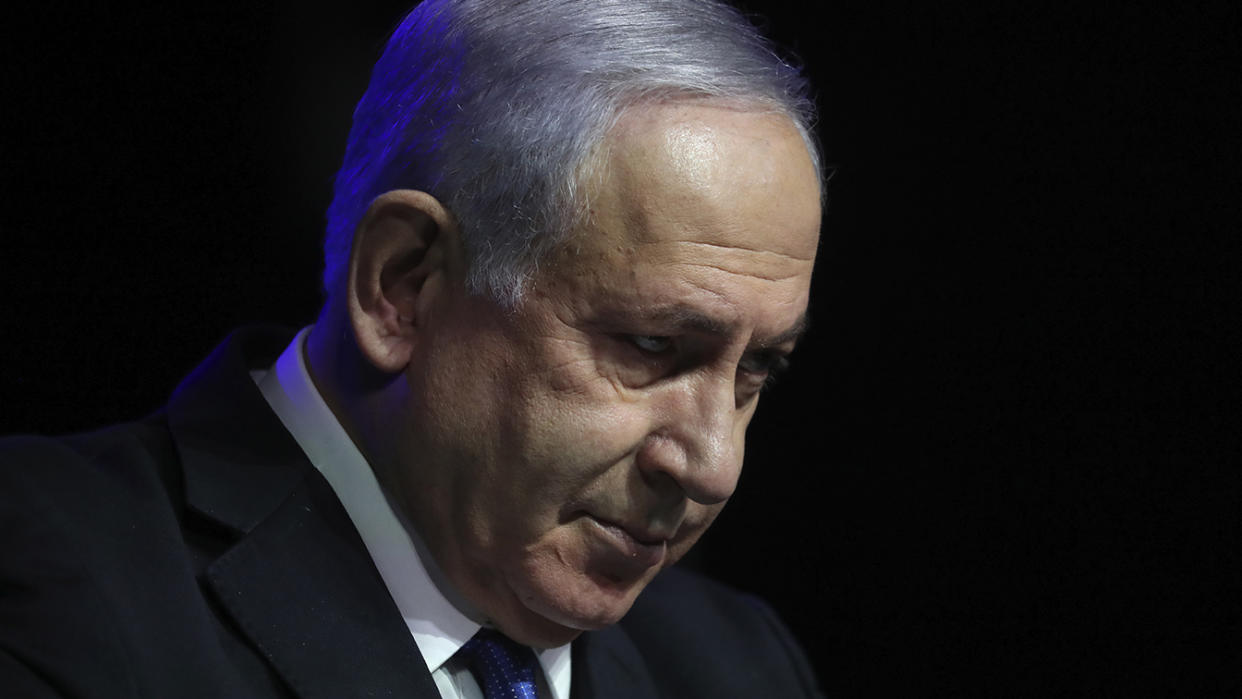The politics behind Netanyahu's sudden imperilment
The announcement by Israeli opposition politicians that they had secured enough seats in the Knesset, or Israeli parliament, to form a coalition to oust sitting Prime Minister Benjamin Netanyahu represents a potential sea change in that country’s politics. Netanyahu is the longest-serving prime minister in Israel’s history — holding that position continuously since 2009, after an earlier stint from 1996 to 1999 — and has deeply imprinted his ideology and leadership style on the country.
Many analysts say Netanyahu, who is currently facing indictment for breach of trust, fraud and bribery, has exacerbated deep dysfunctions in Israeli parliamentary politics. Israel has had four separate Knesset elections in the past two years. Every time, neither the pro- nor anti-Netanyahu factions have scored a clear majority, paralyzing the country.

In the prior three elections, the anti-Netanyahu bloc was unable to form a coalition entirely excluding the prime minister. But this election looks different. Led by the secular centrist Yair Lapid, whose Yesh Atid party makes up the largest single one in the coalition, a wildly ideologically diverse group of anti-Netanyahu parties has cobbled together 61 votes to remove Netanyahu. Because the Knesset has 120 members, this is the smallest majority possible — as razor-thin as it gets.
In Israel’s electoral system, voters cast their ballots for parties in one nationwide district. Once a party crosses a (very low) threshold in the total popular vote, its members can enter the Knesset. The larger percentage of the vote garnered, the more members of that party’s preselected list are seated.
Because of these low thresholds for entry to the Knesset, Israeli politics favors small parties — which can change regularly — that can leverage their relatively small number of seats for important positions in a governing coalition. (In the last Israeli election, for example, more than a dozen different parties were awarded Knesset seats.) But this also means junior members of these coalitions can have excessive veto power, destabilizing parliamentary politics.

It can also lead to some strange coalition bedfellows. And none may be more unusual — and potentially revolutionary — than the current coalition assembled by Lapid. Though, again, Lapid’s party is the largest in the coalition and he is a secular centrist, the prime minister in this government wouldn’t be Lapid (at least for the first two years, if the coalition lasts that long). It would be Naftali Bennett, an archconservative nationalist who has advocated annexing the West Bank, which Israel has occupied since 1967. Bennett was even the past leader of the settlers' council. He leads the Yamina party, which received only seven Knesset seats, compared with 17 by Lapid’s Yesh Atid.
It gets more baroque. To secure the necessary 61 votes to oust Netanyahu, Lapid, Bennett and others also negotiated with Mansour Abbas, leader of the Islamist Ra’am party, to join the coalition. For decades, Jewish Israeli parties have refused to enter into formal coalitions with Palestinian Israeli parties, and Palestinian Israeli parties have generally been leery of working directly with Zionist parties as well. (Roughly 20 percent of the country's citizens are Palestinian Israeli.) It would be historic on its own terms that a Palestinian Israeli party entered into an Israeli government; the fact that it would be a government with Bennett serving as prime minister would be a particularly shocking twist.

Bennett and Lapid have acknowledged that the extraordinary political diversity in the coalition — which also includes other leftist, centrist and conservative parties — means the government would focus on technocratic and other quality-of-life issues for Israelis. There would be no independent Palestine on this government’s watch, but neither would there be an annexation of the West Bank. For some, this might seem frustratingly status quo. But for many Israelis, the task of dislodging Netanyahu from power is paramount. And for them this is a critical first step, because it would allow the conditions for the possibility of some type of Israeli politics to emerge from Netanyahu’s long shadow.
Well, maybe. The new coalition needs to avoid defections ahead of a parliamentary vote to formally oust Netanyahu, and he is working assiduously to pick off individual conservative members of the new coalition who are queasy about formally joining up with leftists and Palestinian Israelis. And even if he does not succeed, at the last minute, in turning the tables on Lapid and Bennett, he will lead by far the largest opposition party in a deeply divided Knesset. Either way, Israeli politics hasn’t come close to hearing the last of Benjamin Netanyahu.
____
Read more from Yahoo News:


